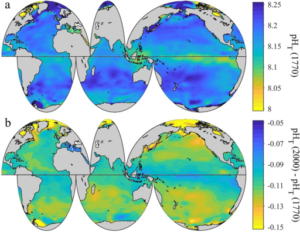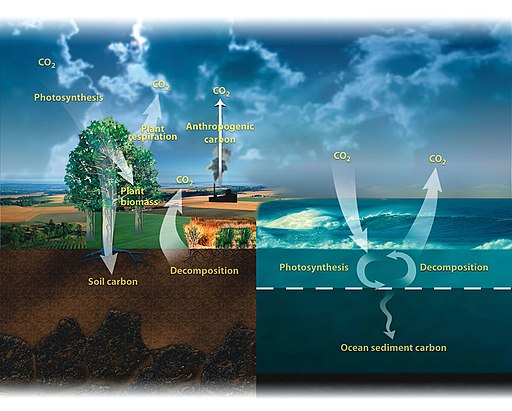By Guest Author: Northeast Fisheries Science Center.
A new study published in the journal PLOS Climate indicates that ocean acidification conditions projected between now and 2100 depress the growth of juvenile Atlantic sea scallops. Ocean acidification is caused by the ocean absorbing carbon dioxide from the atmosphere, resulting in chemical changes that increase acidity. Ocean warming may further hinder growth. Atlantic sea scallops support one of the most valuable fisheries in the United States, worth $670 million in 2021.

Postdoctoral researcher and lead author Emilien Pousse said, “This work describes the energetic balance of sea scallops under ocean acidification conditions for the first time, a species of economic and socio-cultural importance. Within our changing world, getting to know how our marine resources and fisheries could be affected by ocean warming and acidification in the near future is the key to anticipate the upcoming changes.”
The 8-week study was a collaboration between NOAA Fisheries and Massachusetts Maritime Academy in Buzzards Bay, Massachusetts. Faculty and students helped NOAA scientists conduct the study at the campus’ aquaculture lab. Scientists exposed the scallops to three different carbon dioxide levels and measured their growth and metabolism, including feeding, respiration, and excretion rates. Ocean acidification conditions significantly reduced the scallops’ ability to take up energy.
The NOAA Ocean Acidification Program, which funded this work, has a mission to better prepare society to respond to changing ocean conditions and resources by expanding our understanding of ocean acidification.
Dwight Gledhill, deputy director of NOAA’s Ocean Acidification Program, explained further. “Sea scallops represent a critically important fishery for New England and the Mid-Atlantic,” he said. “Because the effects of ocean acidification can vary considerably from species to species.
Read more at Guest Author: Northeast Fisheries Science Center.

